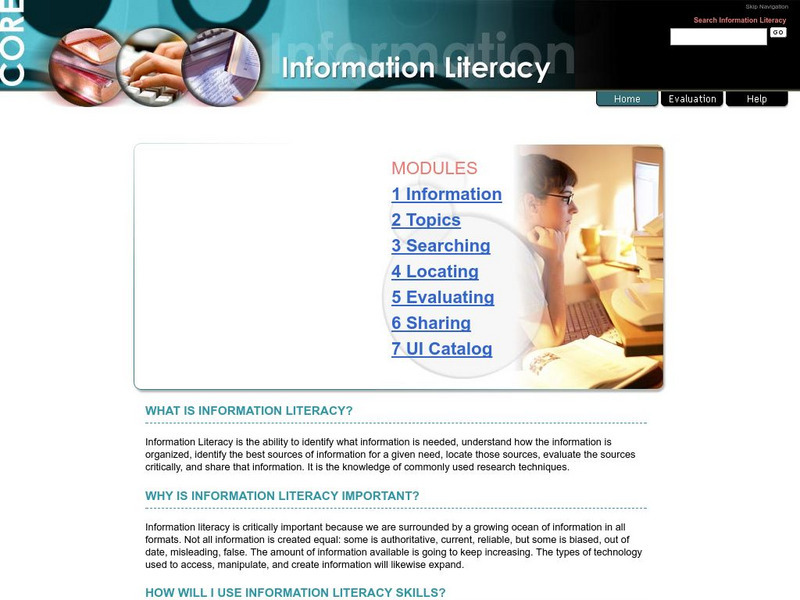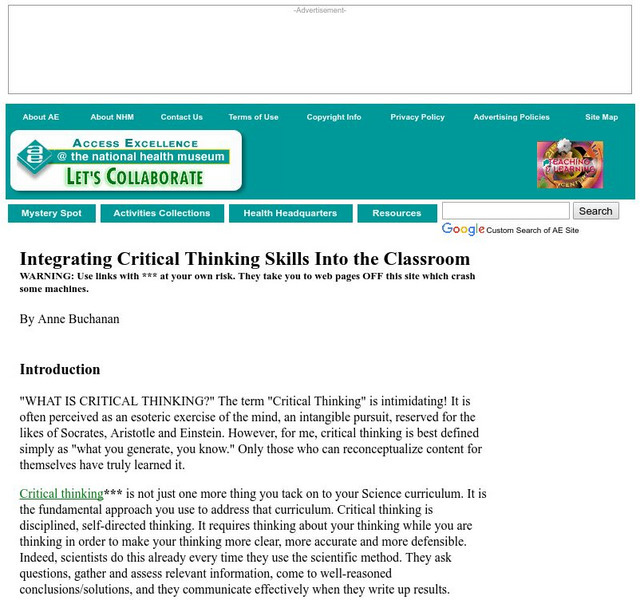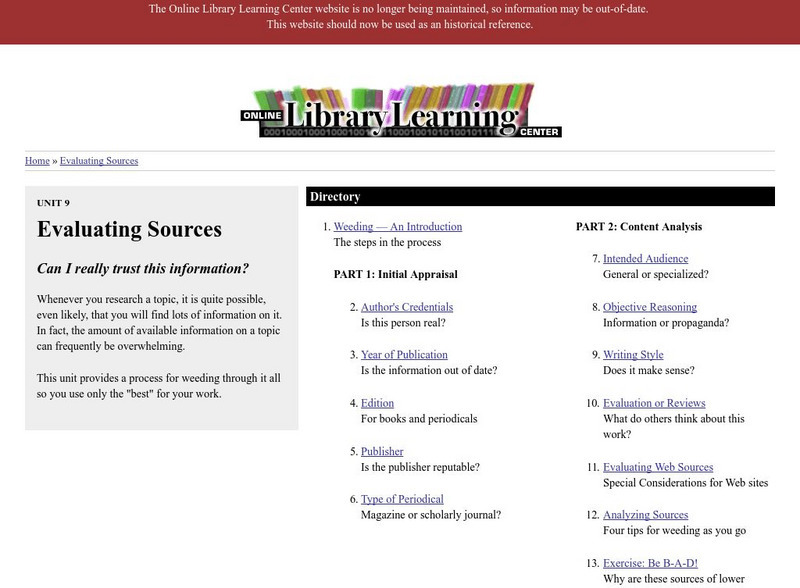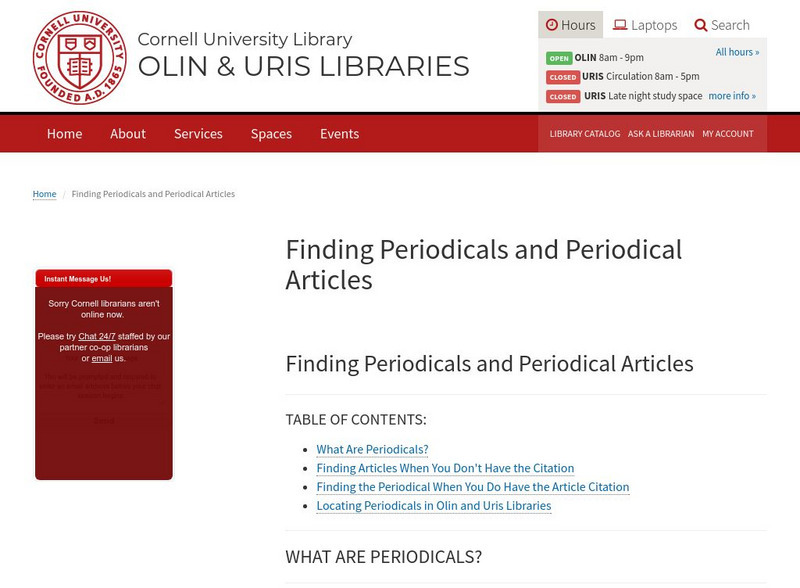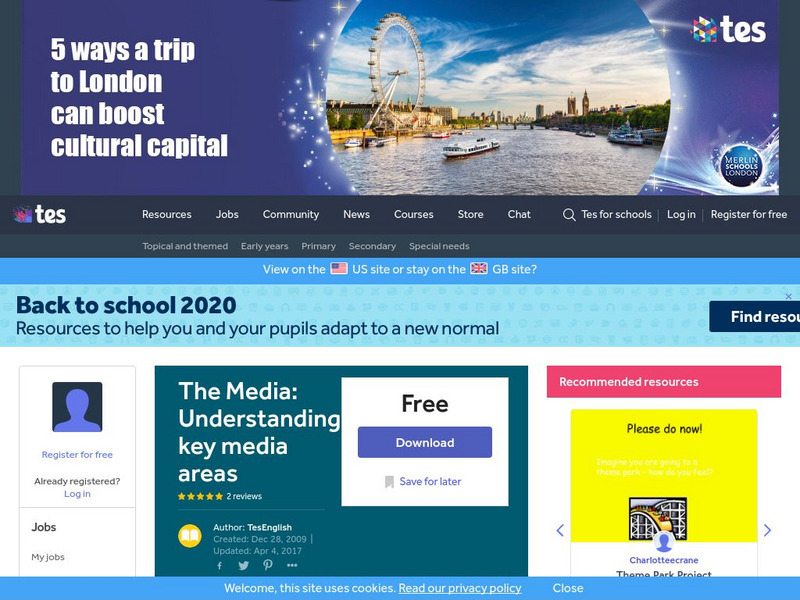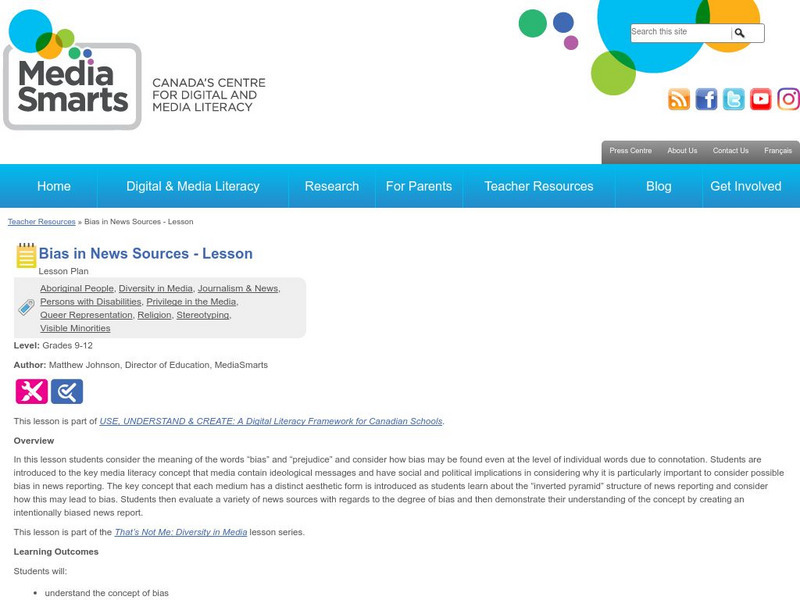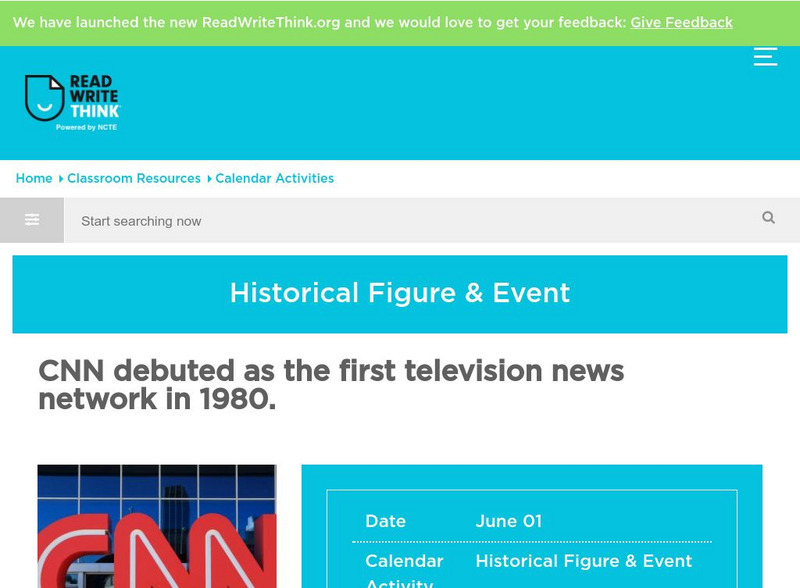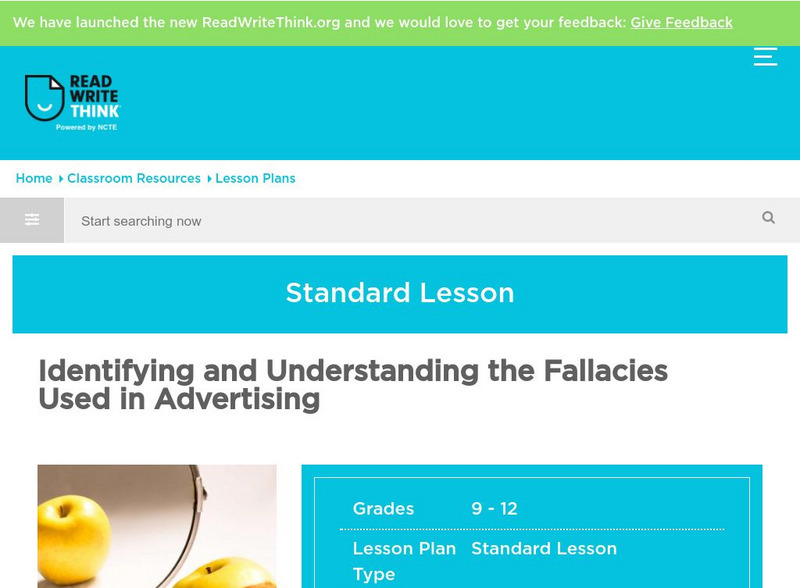Hi, what do you want to do?
Other
The Center for Public Integrity: Home Page
Excellent site for journalists and others who feel that it is their beat to keep a watchful eye on the political culture of the country through investigations and analyses of public service.
Other
University of Idaho: Information Literacy
This learning module focuses on Information Literacy including internet basics, locating, evaluating, sharing, and documenting information.
Grammarly
Grammarly Handbook: Good or Bad Resource?
This page focuses on how to evaluate resources; it establishes criteria for determining good and bad resources. Primary resources are always good, but secondary and tertiary ones need to be evaluated more closely.
Bartleby
Bartleby.com: Newspapers Since 1860
A short summation of how Hearst and Pulitzer shaped the newspapers of their day by adding new features that would appeal to the populace.
Other
Beginning Reporting: Working With News Sources
Maintaining the right balance of familiarity and distance with your sources is key to good reporting. Journalist Jim Hall offers a few more tips on the human side of dealing with news sources.
National Health Museum
Access Excellence: Integrating Critical Thinking Skills
This site from Access Excellence explores how, as an educator, you can incorporate critical thinking skills into the classroom. Content focuses on how to cover content so that students can grasp information, engage with the teacher, read...
Other
Online Library Learning Center: Evaluating Sources
Use this "Weed and feed," approach to get only the best resources for your research project.
Johns Hopkins University
Johns Hopkins University Sheridan Libraries: Information and Its Counterfeits
Distinguishing information from propaganda, biased reporting and misinformation is an important skill. This short article defines each of these, and provides examples of each.
Other
Flickr: Critical Thinking Skills Poster
A downloadable critical thinking skills poster based on the original six levels of Bloom's taxonomy.
Cornell University
Cornell University: Finding Periodicals and Periodical Articles
This resource offers a good look at periodicals as a source of information, and offers help for finding articles in a variety of situations.
TES Global
Tes: The Media: Understanding Key Media Areas
[Free Registration/Login Required] During this unit of study, students will analyze several types of advertisements. Students will analyze how authors pay attention to the language and visuals to appeal to their audiences.
Other
The International Press Institute
The International Press Institute describes itself as "a global network of journalists, editors and media executives, dedicated to freedom of the press and improving the standards and practises of journalism." To that end, this site...
Other
Pbs: Media Shift: Your Guide to the Digital Media Revolution
This website is a guide to the way the new media-blogs, RSS, podcasting, citizen journalism, wikis, news aggregators, and video repositories-are changing the way we take in the news of our world. Click on the underlined words to...
Sophia Learning
Sophia: How to Choose Credible Sources
This tutorial focuses on choosing credible sources for a research project. It offers two versions of a slideshow: a non-audio slideshow and an audio slideshow which explains the information as it is shown. They each define terms, offer...
Sophia Learning
Sophia: Bias
Notes introducing bias and demonstrating how to identify slight, moderate, and strong bias in a text. Notes can be both read and listened to.
Other
Becoming a Critic of Your Thinking
This resource presents an article that explains why it is important to be someone who is a good thinker. Provided are four strategies for critical thinking.
Media Smarts
The Media Awareness Network: Bias
Slant, or bias, can be found in virtually every news outlet. Use this online lesson plan to help students understand how word choices and other factors can intentionally or unintentionally affect the audience's understanding.
Other
Society of Professional Journalists: Freedom of Info.
This resource is a great tool for journalists and non-journalists to obtain information from federal and local government sources. Access to this information can make or break a news story.
Other
Santa Rosa Library: How to Evaluate Information Resources
Tips and information about how to evaluate resources, both print and electronic. Includes information about source authority, purpose, objectivity, currency, completeness, and relevance. It includes a printable handout (top right)with...
Cornell University
Cornell University: Library: Critically Analyzing Information Sources
A quick guide to help you determine the relevance and authority of a resource.
George Mason University
Gmu: Virginia Montecino: Criteria to Evaluate the Credibility of Www Resources
An easy-to-follow guide to assist in determining whether online resources are reliable and true. Find questions to ask while reviewing sources. CCSS.ELA-Literacy.CCRA.W.8 and CCSS.ELA-Literacy.CCRA.R.9
ReadWriteThink
Read Write Think: Cnn Debuted as the First Television News Network in 1980
These lesson plans relate to the gathering and production of news and creating a visual timeline. There are links to other lesson plan ideas, as well as web links, and a brief bibliography. SL.11-12.2 Eval&Integrate sources
ReadWriteThink
Read Write Think: Identifying and Understanding the Fallacies Used in Advertising
Students examine the fallacies that surround them every day, deconstruct fallacious images and messages in advertisements, and demonstrate their understanding of the fallacies through multimedia presentations.
Other
Media Education Foundation: Deconstructing a Video Advertisement [Pdf]
Handout that leads students through an exploration of the visual and audio elements of a video advertisement as well as the effect these elements have on the intended audience and the community as a whole.






